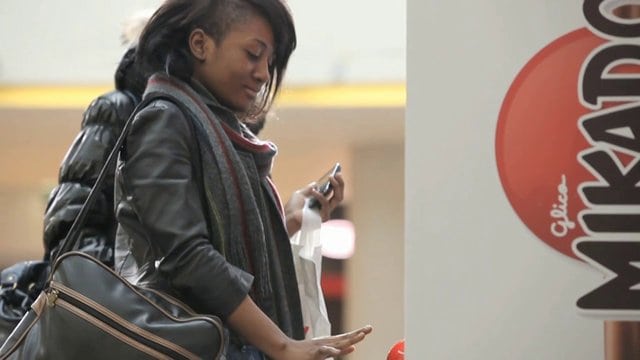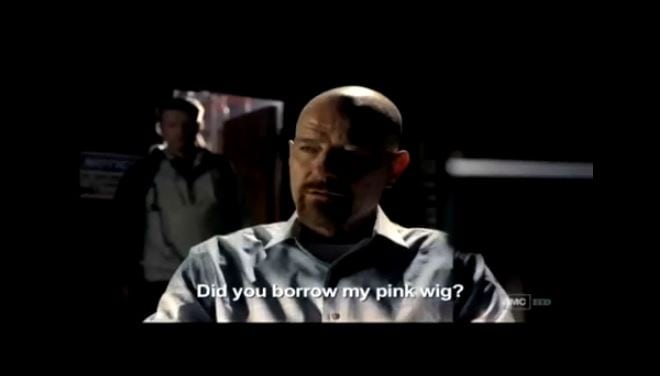Camera Shy, a recent ad released last month by Dove, took over the first spot on the Viral chart. The ad features women from all age groups and walks of life, who turn their faces away as soon as they are approached by a camera. To be honest, I do that too quite often, maybe it has more to do with the feminine instinct, telling them, “Oh, camera, let’s just play hide and seek!” While, in the second half of the ad, a number of young girls (that’s the age where I believe the instinct hasn’t developed as yet) are featured, who happily dance, smile and play around in front of the camera. The ad ends with the message, “When did you stop thinking you were beautiful?” All in all, a brilliant campaign by Dove, no wonder, it scored the number one spot for itself. Check it yourself and leave…
Have not we all become tired of listening to almost unreal sounding stories for ad campaigns, all of them promising us of the product being just the right choice for us? But, Mikado, does not believe in creating illusions for its customers. Not forgetting the ethics of marketing, Mikado, through a vending machine, tried its best to tell customers how dangerous the product is likely to be for them. Because if you start eating Mikado, you just cannot stop! And, guess what? In spite of the constant warnings, and repeated demonstrations of how the product can get you into trouble, crowds of people kept pouring in, and risked their lives only to get a free packet of Mikado! So, the Mikado staff made the demonstrations again and again, showing how people end up in awkward, and mostly dangerous situations only because they eat Mikado. Yet again, the company failed, as…
In China, every year around 20,000 children go missing, and are sold into child prostitution, slave labour or are forced to beg. However, living in a country with over 1.4 billion population, the helpless parents and guardians have started losing hope of seeing their children again, any time soon. Finally, the pleas of these distressed parents and guardians were heard when government along with JWT aimed to help reunite parents with their missing children. In order to make this campaign work, a number of statues portraying a couple, with an empty space of a child between them were placed in all the major cities in China. The campaign also launched a smartphone application, that allowed users to look through the phone camera to see an image of missing child in place of the hollow spot. Also, the application allowed its users to take pictures of children on streets that they…
Don’t we all form consensus over the idea that the sweetest part of a chocolate bar is the last piece? Keeping this insight in mind, Milka decided to keep the last piece of chocolate to themselves instead. You are possibly wondering if such kind of campaigns can actually turn out to be popular. Well, yes, this campaign earned thousands of loyal customers for Milka, drastically increasing its sales. Milka, while taking away the last piece of chocolate, dared its customers to be tender. Through a hidden code on the bar’s wrapper, the chocolate company gave its customers the choice of getting back the missing piece to themselves or mailing it to someone they care about, along with a personalized message. The campaign turned out to be something that touched the hearts of many across France and worldwide. Think you can be tender enough to share your last piece of chocolate…
Britanico English Institute, an English teaching center in Peru, came up with a crazy, and a barely legal ad campaign to promote their service. As millions of online users in Peru downloaded movies from various online links, subsequently looking for English to Spanish subtitles to eliminate language barriers, Britanico devised a nasty plan to gain a few clients. Britanico decided to play around with online subtitle downloaders a bit, by hacking into the pirate websites and completely changing the subtitles into crazy, out of context phrases. But hey, what were they actually saying? Well, you need to join Britanico English classes to clearly understand what they actually meant. Later, I am sure even the Peruvian non-English speakers can have a good laugh about it. Watch this hilarious ad campaign. I couldn’t hold myself from laughing out loud and I am sure, neither will you.
A brilliant animated television advertisement by NZI, an insurance company in New Zealand, shows how bad luck can destruct our lives and career so it is always a good idea to be insured before the unseen happens. This ad narrates a short story of a cursed chair that takes bad luck with itself, wherever it goes. From flooding offices, to crashing brand new cars into poles, and blowing up petrol stations. This devil’s chair can turn over any good into bad. The ads ends with a text saying, “Bad’s not going anywhere. Neither are we” NZI through this ad tries to highlight issues of unforeseen risks that small businesses might face in case they do not get themselves insured from a good insurance company like the NZI. Watch the commercial and let us know your feedback in the comment section below. No wonder sometimes just a little bad luck can…
It seems like Coca Cola and their guerrilla campaigns have a long way to go. After coming up with a bunch of innovative guerrilla campaigns already this year, it did not surprise me to see yet another amazing marketing effort by the most creative company. Earlier, Coca Cola in Israel came up with the ‘Share a Coke’ campaign that lets consumers drink from a personalized first name printed cans. The next step was to take the idea further, and display their fans names on billboards! To be one of the lucky customers to get their names on billboards put up across Israel, thousands of smartphone users downloaded a Coca Cola application that asked them to sent in their first names. The application used geo-fence technology to detect the proximity of the users, and as soon as they headed to one of the Coca Cola billboards, they were sent a text message, alerting…
Radar in Kenya came up with a great campaign to hire security guards for its company. The company hid a total of 200 fake notes at tricky places under a number of vehicles. The security guards who found the note, were presented the offer of working for Radar at a much better pay-scale. Interesting right? What could be a better recruitment process than to have an on-job assessment. Apart from being a brilliant recruitment campaign for Radar, the campaign also gave a shocking reality check to Kenyans, as only 43 of the 200 fake notes were found. Therefore, the campaign put to question if the security firms, we all blindly put our faith in, are actually good enough for the job? While Radar, made another score among the Kenyan population by eagerly hiring some of the most efficient security guards across the country. See how this campaign worked through the…








